SUMMARY
This is AI generated summarization, which may have errors. For context, always refer to the full article.
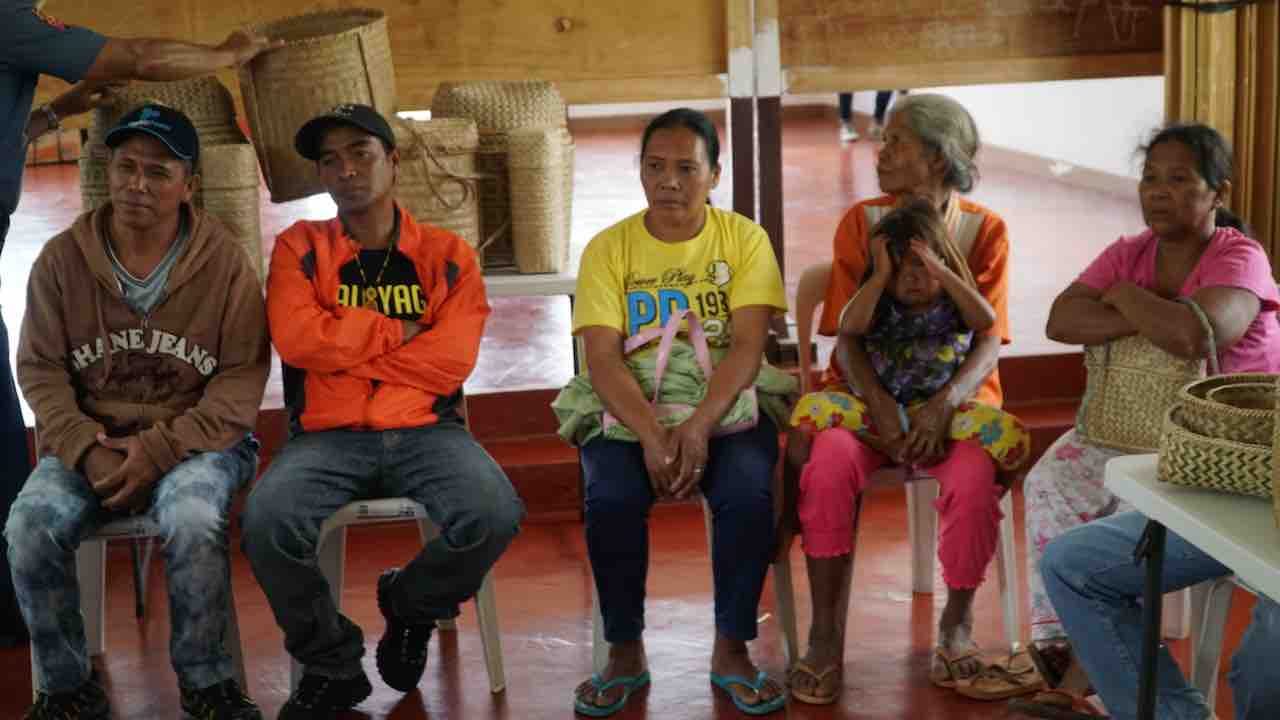
DAVAO CITY, Philippines – The government and private sector have joined hands to help the Matigsalug tribe, among the poorest in Mindanao, develop skills and sustain their livelihood.
The Matigsalug, which literally means “from the river,” is a tribe hailing from the mountains of Davao, Bukidnon, and North Cotabato. In Davao City, they live in the highlands in Marilog District.
Since 2015, the Department of Trade and Industry and the Aboitiz Foundation have been conducting entrepreneurial and skills development training among the tribe members.
In turn, the members help plant trees on their land as part of the company’s Carbon Sink Management Program (CSMP), which aims to plant at least 1 million trees in 10 years to offset the carbon emissions of its coal-fired power plant, Therma South Incorporated.
In November 2015, the Department of Trade and Industry and the Aboitiz Foundation provided the Matigsalug Council Of Elders Marilog District Davao City, Incorporated (MACOEMADDACI) – an organization of Matigsalug members, led by “elders” from 24 sitios. – with 11 sewing machines and raw materials to train tribe members how to produce their traditional costume.
Members were also taught how to improve their woven baskets, beads, and bracelets. Region 11 designers also helped in product development and sales.
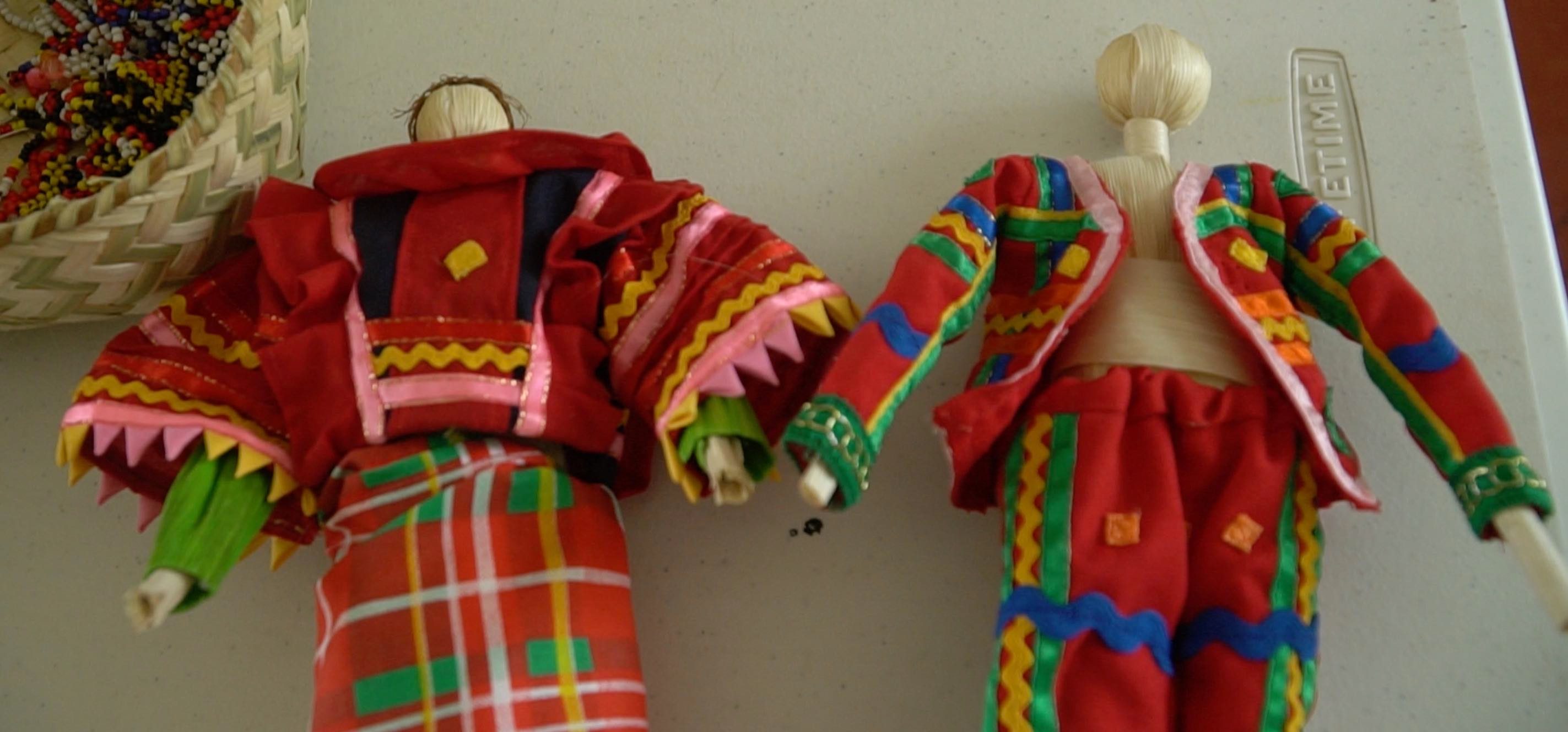
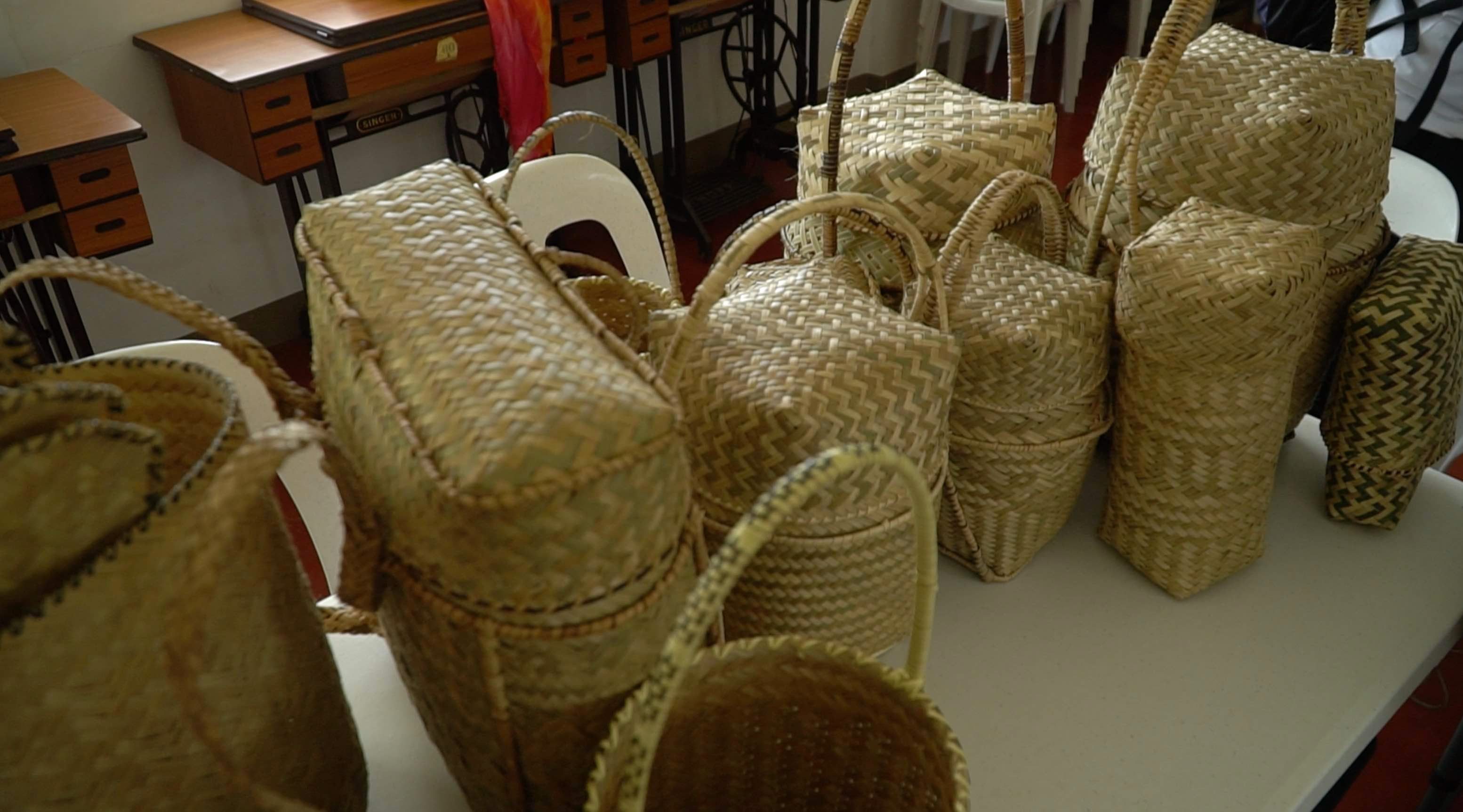
“What we did, we conduct product development. Nagkaroon kami ng (We had a) skills and product inventory. Tiningnan namin ano ba talaga produkto nila (We checked what their products). Amazingly, we discovered 3 products. While it’s true we started with the tribal wear, pero meron pa pala silang baskets, meron pa pala silang (they have baskets, they have) beads, Agsam bracelets,” Arriel Nengasca, Senior Trade and Industry Development Specialist of DTI Region 11, told Rappler on Friday, May 5.
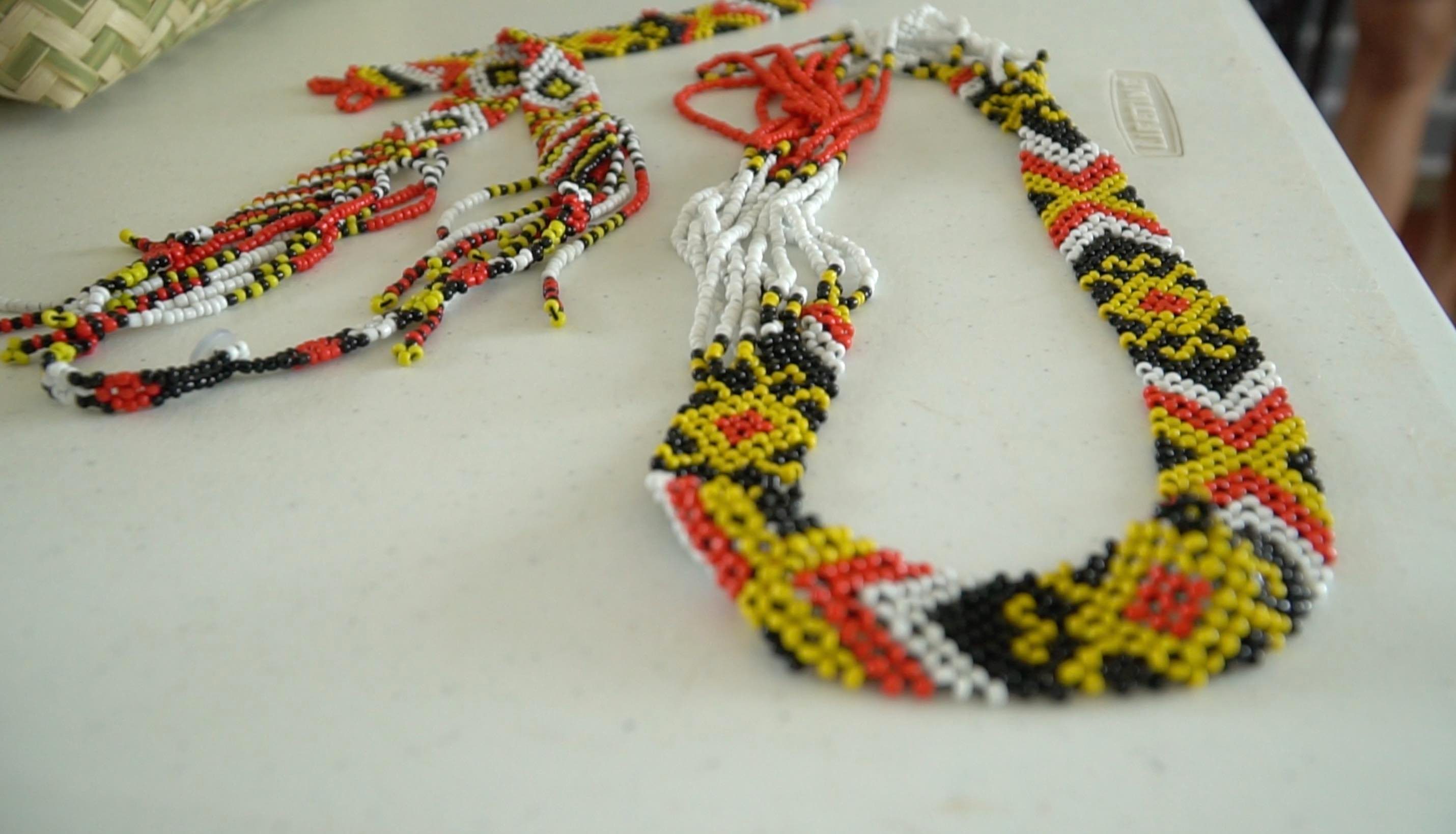
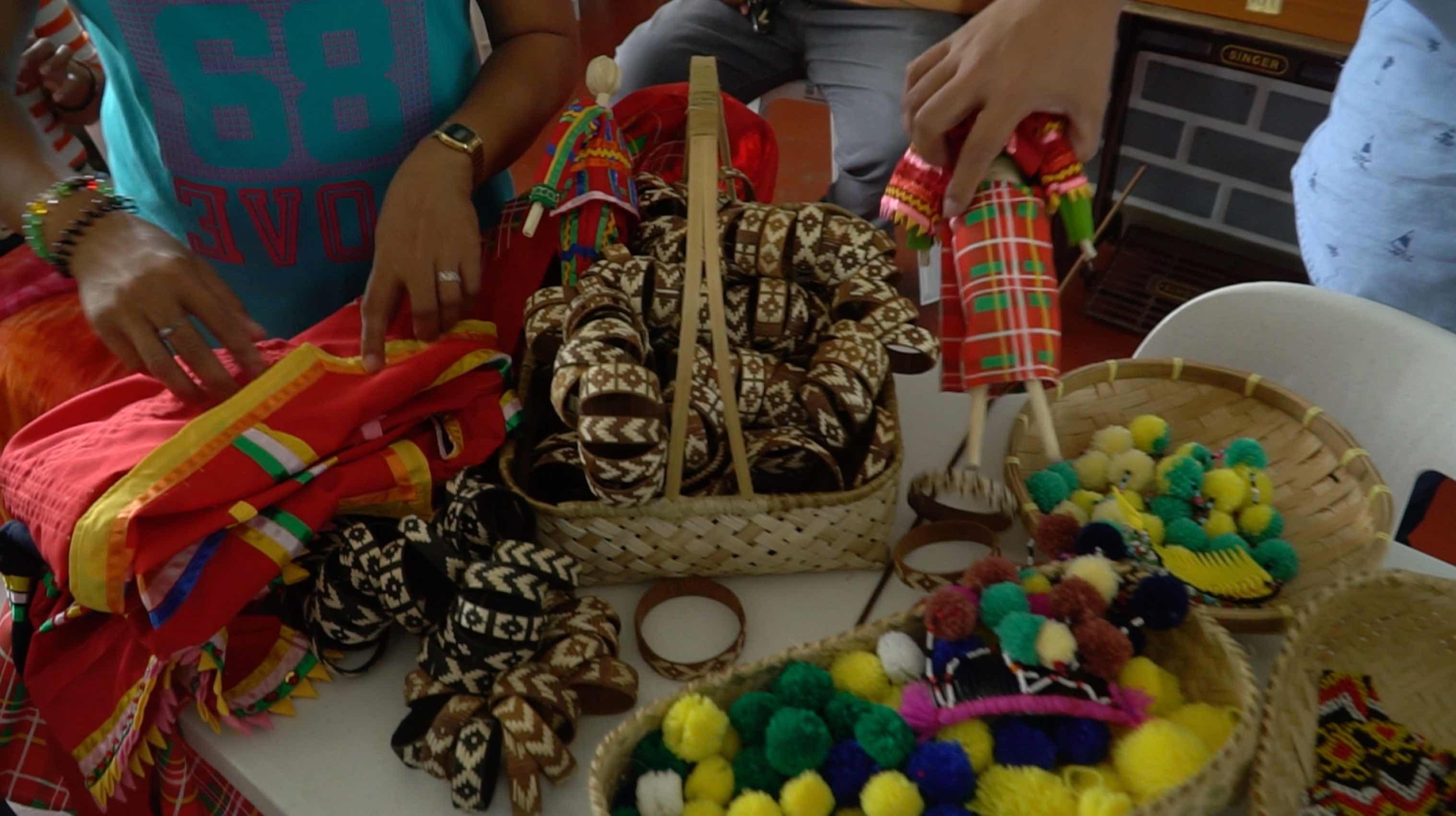
The tribe earned P14,000 from this, which it then used as capital for their next set of products.
Further improvement
Despite the initial good turnout, Nengasca admitted the training would have to continue to fix “gaps.” He explained since the Matigsalug make their bags and accessories for personal use, these products have to be improved for a bigger market.
“Whole month of May, we will have skills training. In terms of products, we want to improve the quality so we can market it in major trade fairs, trade shows, like FAME,” he said.
“We have to address the gaps like they don’t know how to measure. They don’t have any idea about measurement. They don’t know what’s small, medium, large is. Another thing, they don’t know pricing and costing, since all the materials are available from their surroundings. They just get it, turn it into a basket, bracelet, without knowing how much the cost is. Sometimes it’s too high, sometimes it’s too low,” he added.
Datu Juanito Mandahay, president of the group, said the partnership with the government and private sector have helped them restore and revive their culture, which they initially feared was already dying.
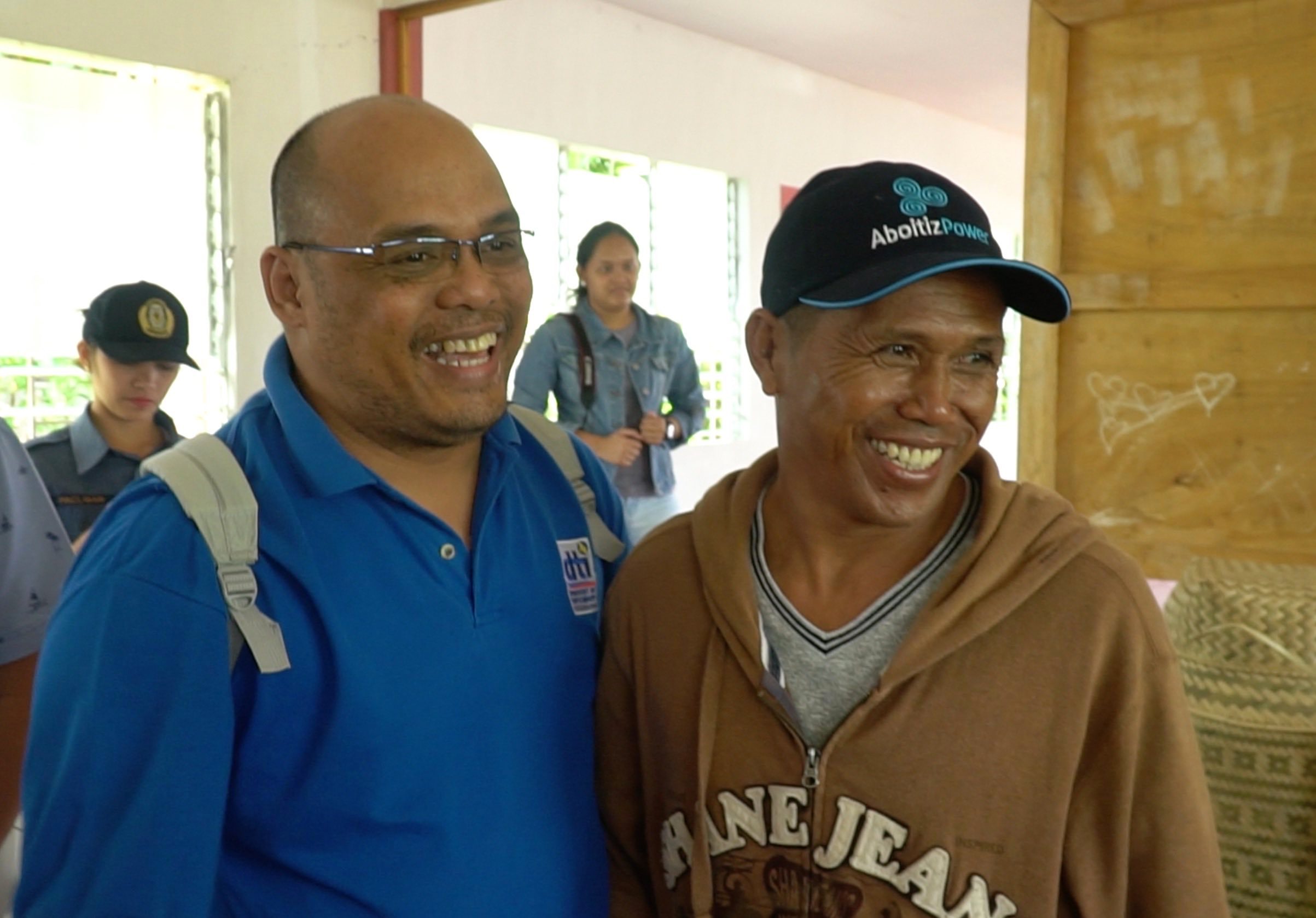
Since the tribe’s customs and traditions are based on nature, the CSMP project allowed them to re-build their culture’s sanctuary, he added.
“We get everything from Mother Nature – medicines, food, water, everything. We are very happy because of this sustainable program. It also teaches us to enhance our traditional products anchored on our unique culture, the Matigsalug tribe,” Mandahay said in Bisaya.
Nora Latao, 47, recalled how her mother taught her how to weave baskets and bracelets when she was a kid. She is happy that she could now earn more from them.
“I learned how I could sell the products better and improve them. The DTI is now ordering from us, so we earn more,” she said in Bisaya.
The DTI said it hopes to showcase the improved products of the tribe in national and regional trade fairs scheduled from August to October this year. – Rappler.com
Add a comment
How does this make you feel?





There are no comments yet. Add your comment to start the conversation.